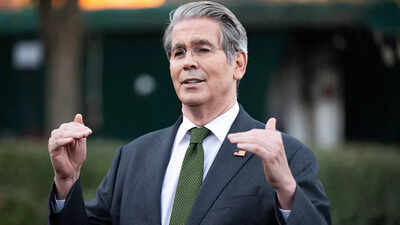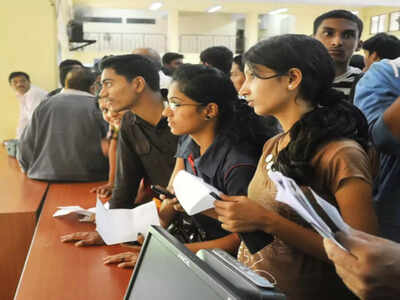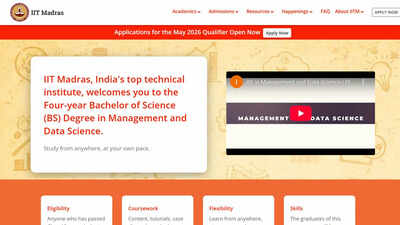‘Train us, then go home,’ says Scott Bessent: Trump’s H-1B pivot and what it reveals about America’s skills gap

When a political message begins sounding like a coordinated duet, it usually means someone has been practising — and in this case, the rehearsal seems to have taken place in the Fox News studios. First came President Donald Trump, telling Laura Ingraham on The Ingraham Angle that America does not, in fact, have all the talent it claims. Confronted with the argument that the US has “plenty of skilled workers,” he cut her off: “No, you don’t… you don’t have certain talents, and people have to learn.” It was classic Trump: Blunt, unscripted, and inconveniently revealing.A day later, Treasury Secretary Scott Bessent appeared on Fox News with a remarkably complementary explanation. The President’s vision, he said, is to bring in overseas workers “with the skills,” let them train Americans for “three, five, seven years,” and then send them home so that US workers can “fully take over.”
Bessent explained that the programme addresses skill shortages in industries such as manufacturing, semiconductors, and shipbuilding. Focus on rebuilding US manufacturing and technical skillsBessent noted that the US has offshored precision manufacturing jobs over the past two to three decades. He highlighted the administration’s goal of revitalising these sectors to restore domestic expertise. “For 20–30 years, the US has offshored precision manufacturing jobs. And the President’s point here is, again, we can’t snap our fingers and say, ‘You’re going to learn how to build ships overnight’. We want to bring the semiconductor industry back to the US,” Bessent said in his conversation with Fox News.He described the initiative as “a home run,” pointing out that shipbuilding and semiconductor production have not been significant in the US for many years.Trump stresses the need for skilled foreign talentPresident Trump also addressed the H-1B programme in his Fox News interview, defending the need for foreign professionals in specialised roles. “You also do have to bring in talent,” he said. Trump rejected claims that the US already has enough skilled workers, stating, “No, you don’t. You don’t have certain talents. And people have to learn. You can’t take people off an unemployment line, and say, ‘I’m going to put you into a factory, we’re going to make missiles’.”Citing an example from Georgia, Trump explained that South Korean workers with expertise in battery manufacturing were removed despite their technical skills. He emphasised that such specialists are essential for training local employees in complex and hazardous processes.
Is America really short of a skilled workforce?
Well before the Trump–Bessent Fox News chorus took over primetime, AAU President Barbara R. Snyder had already written the footnote that America is now pretending not to read. In her official statement, Snyder announced that the AAU has joined the lawsuit originally filed by the U.S. Chamber of Commerce, seeking to enjoin the 100,000-dollar H-1B fee the Trump administration has imposed — a fee she argued strikes at the very architecture of U.S. innovation. She reminded policymakers that Congress created the H-1B programme precisely because employers needed “highly skilled, specially trained personnel” for roles so sophisticated that domestic workers simply could not fill them.America, she noted, may have many high-skilled workers, but not nearly enough to keep pace with the demands of research-driven universities and cutting-edge industries the country proudly markets as its global signature. H-1B positions in higher education, Snyder stressed, are “extremely hard to fill,” spanning specialised teaching, frontier scientific research, and advanced medical care. “American businesses and institutions of higher education alike utilize the H-1B program because the domestic supply of highly skilled workers is not large enough to keep up with the demands of U.S. innovation,” she said — a sentence that now reads like an accidental synopsis of the Trump–Bessent argument on national television.The harm of a six-figure visa fee, she warned, would not stop at university gates. It would spill outward — into communities, states, and the wider public — because these very researchers “help spur innovation” and train the next generation of U.S. scientists and technologists. If America is nursing a skills shortage, Snyder implied, it is the H-1B scholars who are holding the scaffolding together, not weakening it.
The contradiction America can’t quite hide
In the end, the message from Washington’s studios and universities converges almost too neatly: America insists it has the talent, yet its policies betray a nervous dependence on those who arrive with skills it cannot instantly produce. Trump and Bessent frame foreign workers as temporary trainers; universities warn they are the backbone of innovation. Between the rhetoric and the reality lies an uncomfortable truth — the skills gap isn’t foreign-made, but home-grown.






